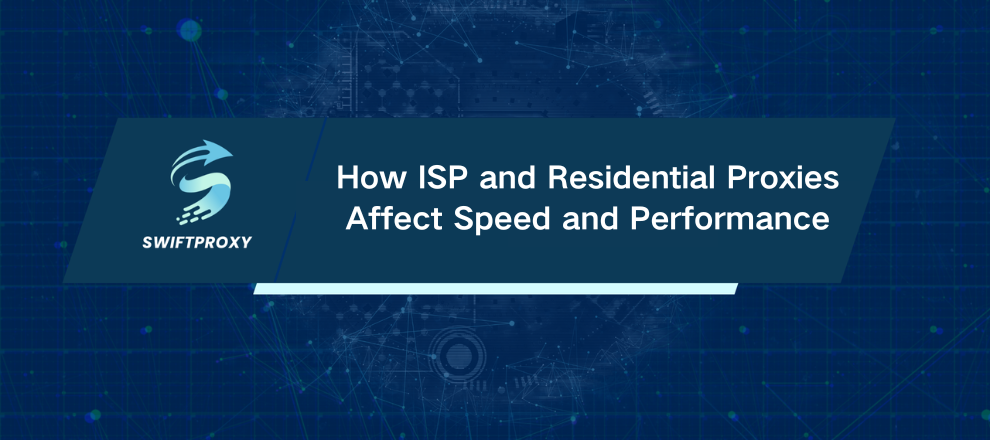How ISP and Residential Proxies Affect Speed and Performance

If your goal is to browse the internet quickly while remaining virtually invisible, proxies are the solution. Both ISP and residential proxies can reshape how you handle online tasks, from data collection and market research to managing multiple accounts. The question is, which type best suits your needs? Let's explore.
Introduction to ISP Proxies
ISP proxies, also called static residential proxies, merge the speed of data center proxies with the authenticity of residential IPs. In essence, they let you browse through your Internet Service Provider (ISP) while masking your real IP.
How They Work:
Your connection routes through a pool of ISP-owned IPs. The proxy forwards your request to the website, grabs the response, and delivers it back to you. From the website's perspective, it looks like a genuine residential user is visiting.
Why Use Them:
High Anonymity: Real residential IPs reduce detection.
Exceptional Speed: Ideal for high-traffic tasks.
Reliability: Direct ISP links mean stability.
Ethical Sourcing: IPs come from legitimate ISP pools.
Considerations:
More expensive than standard proxies.
Limited geographic coverage.
Minor risks remain regarding reliability and security.
Introduction to Residential Proxies
Residential proxies route your traffic through IPs assigned to actual home users. Unlike datacenter proxies, which rely on large server farms, these IPs appear as normal household connections.
How They Work:
You connect to the service → it assigns you a residential IP → your requests pass through this IP → websites see genuine home traffic.
Why Use Them:
Authenticity: Harder for websites to flag or block.
High Anonymity: Your real IP remains hidden.
Geo-Access: Reach region-restricted content effortlessly.
IP Rotation: Some services rotate IPs to reduce detection risk.
Considerations:
Can be slower than ISP proxies.
Costly for large-scale operations.
Must ensure IPs are ethically sourced.
ISP vs. Residential Proxies
Source of IPs
ISP proxies: Static IPs from ISP-managed pools.
Residential proxies: Dynamic IPs from real home devices.
Speed
ISP proxies: Fast and stable, thanks to dedicated infrastructure.
Residential proxies: Varies depending on home internet quality.
Pricing
ISP proxies: Higher, but worth it for speed and reliability.
Residential proxies: Usually cheaper but can add up at scale.
Applications
ISP proxies: Web scraping, social media automation, online gaming.
Residential proxies: Geo-blocked content, market research, ad verification.
Reliability and Scalability
ISP proxies: Highly stable and easily scalable.
Residential proxies: Stability varies; scalability depends on IP availability.
Privacy and Rotation
ISP proxies: Static IPs, slightly less anonymous.
Residential proxies: Often rotating IPs, offering maximum anonymity.
Block Threat
Both options reduce risk, but ethical sourcing matters for residential proxies.
Where to Get Reliable Proxies
Swiftproxy offers both ISP and residential proxies with a focus on ethics, performance, and global reach. Their services include:
Ethically-Sourced IPs for compliance.
High Performance and Reliability with 99.5% uptime.
Global Coverage to bypass geo-restrictions.
User-Friendly Interface and 24/7 support.
Geo-Targeting Tools for precise market research.
Swiftproxy ensures that whether your goal is scraping, SEO monitoring, or managing multiple accounts, your proxy infrastructure is fast, reliable, and secure.
Final Thoughts
Choosing between ISP and residential proxies isn't just about speed or cost—it's about aligning the tool with your goals. ISP proxies shine when you need fast, stable connections. Residential proxies excel when anonymity and authenticity matter. With the right setup, you can navigate the internet with confidence, agility, and security.

















































